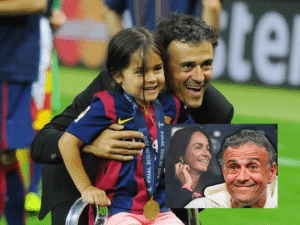Themadsi down syndromalso known as Mosaic Down Syndrome is a rare variation of the more common Down syndrome (Trisomy 21). Unlike the typical form where all cells in the body have an extra copy of chromosome 21 in madsi down syndrom only some of the body’s cells have this extra chromosome while others remain normal. Because of this unique genetic mix the symptoms can be milder and vary greatly from person to person.
What is Madsi Down Syndrom?
Madsi down syndrom occurs when a random error happens during cell division after fertilization. Some cells end up with three copies of chromosome 21 while others have the normal two copies. This condition is called mosaicism which is why it’s referred to as Mosaic Down Syndrome.
This form of Down syndrome is quite rare making up only about 2-4% of all Down syndrome cases. People with this condition often show fewer physical and cognitive traits typically associated with Down syndrome depending on how many cells are affected.
Causes of Madsi Down Syndrom
The cause of madsi down syndrom is a random error in cell division called mitotic nondisjunction. After the egg and sperm combine the embryo’s cells start dividing. If an error occurs during these divisions some cells receive the extra chromosome 21 while others do not.
Unlike some genetic conditions madsi down syndrom is not inherited. It happens randomly and is not linked to parental genetics. While maternal age can increase the risk of Down syndrome in general this mosaic form is less predictable.
Symptoms and Characteristics
People with madsi down syndrom often have milder features compared to classical Trisomy 21. Common characteristics can include:
-
Mild to moderate intellectual disabilities
-
Distinctive facial features such as almond-shaped eyes flat nasal bridge or small ears
-
Low muscle tone (hypotonia) during infancy
-
Slower growth or shorter stature
-
Learning challenges
-
Possible congenital heart issues or other medical conditions (though less common compared to typical Down syndrome)
Since not all cells are affected some individuals may show very few or even no obvious physical traits.
Diagnosis
Diagnosing madsi down syndrom requires genetic testing as physical features alone may not be enough to confirm it. Tests include:
-
Karyotyping – A lab test to examine the number and structure of chromosomes
-
FISH (Fluorescence in Situ Hybridization) – A faster test for detecting chromosomal abnormalities
-
Chromosomal microarray – A modern technique to detect mosaic patterns in cells
Prenatal testing can also identify mosaic Down syndrome if there are indicators during pregnancy.
Treatment and Support
There is no cure for madsi down syndrom but with proper care and early intervention individuals can lead fulfilling lives. Common support methods include:
-
Early intervention programs – Speech therapy physical therapy and occupational therapy to help with development
-
Regular health check-ups – To monitor for heart or thyroid issues which can sometimes occur
-
Personalized education plans – Tailored learning strategies to help children succeed academically
Living with Madsi Down Syndrom
Many people with madsi down syndrom live healthy independent and happy lives. Some attend mainstream schools find jobs and enjoy meaningful relationships. Social acceptance awareness and early therapies play an essential role in helping them reach their full potential.
Families can also benefit from support groups and counseling which provide valuable advice and emotional support.
FAQs about Madsi Down Syndrom
1. Is madsi down syndrom curable?
No it is a genetic condition. However therapies and support can greatly improve quality of life.
2. How rare is madsi down syndrom?
It accounts for only 2-4% of all Down syndrome cases.
3. Can someone with madsi down syndrom live a normal life?
Yes many individuals live fulfilling lives especially when early therapies are provided.
4. Is madsi down syndrom inherited?
No it occurs due to a random cell division error and is not passed from parents.
5. What makes it different from classic Down syndrome?
Not all cells are affected so symptoms can be milder and less noticeable.
Fazit
The madsi down syndrom is a rare but fascinating variation of Trisomy 21. With early intervention personalized care and societal support people with this condition can thrive. Raising awareness and understanding is key to ensuring that individuals with madsi down syndrom are valued and supported for their unique strengths and abilities.











